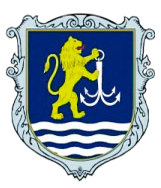MODEL APPROACH IN PROJECT MANAGEMENT METHODOLOGY
Abstract
Introduction. Some mathematic models of project management encounter the need for determining the maximum radius of hypersphere immersed into a polyhedral region. The modern mathematic tools of the optimization theory in conjunction with application of computer technology allows for solving nonlinear optimization problems. However, linearization of complicated nonlinear problems keeps being permanently feasible. Such a simplification enables using exact classic methods of optimization solution as opposed to approximate ones for nonlinear optimization. We have to set a task of rigorous mathematic reduction (linearization) of a polydimensional nonlinear optimization problem on immersion of a maximum-radius hypersphere into a convex polyhedral region. Let us have a closed polyhedron provided by a system of linear algebraic inequalities. The maximum-radius hypersphere is to be placed into the closed polyhedron region. Purpose. The article provides analysis of a model on determining the maximum radius of hypersphere placed (immersed) into a polyhedral region (a convex set restricted by straight lines) that enables taking account of a big set of factors including the following: Project Integration Management; Project Scope Management, Project Quality Management Project Time Management, Project Cost Management, Project Communication Management, Project Procurement Management and Project Risk Management. Result. The model has proposed rigorous mathematic reduction (linearization) of a nonlinear optimization problem on placing a maximum-radius hypersphere into a convex polyhedral region, to a linear optimization problem. Thus, the problem on placing the maximum-radius hypersphere within a polyhedron shall be formulated as a linear optimization problem. Conclusions. It has been rigorously proven that the problem on immersing the maximum-radius hypersphere into a polyhedron can be represented as a linearization problem. The problem has been reduced to a classical linear optimization problem soluble by known methods. The proposed approach is generalized on an arbitrary finite dimensionality problem.
Downloads
References
2. Teller J., Unger B., Kock A., Gemünden H. Formalization of Project Portfolio Management: The Moderating Role of Project Portfolio Complexity. International Journal of Project Management. 2012. Volume 30. № 5. Р. 596–607.
3. Данциг Дж. Линейное программирование, его применение и обобщение. Москва : Прогресс, 1966.
4. Канторович Л.В., Горстко А.Б. Оптимальные решения в экономике. Москва : Наука, 1972.
5. Unger N., Dempe S. Lineare Optimierung. Springer, 2012.
6. Гетманцев В.Д. Лінійна алгебра і лінійне програмування. Київ : Либідь, 2001.
7. Математичне програмування / І.М. Багаєнко, В.С. Григорків, М.В. Бойчук, М.О. Рюмшин. Київ : Логос, 1996.
8. Teschl G., Teschl S. Mathematik für Informatiker. Band 1: Diskrete Mathematik und Lineare Algebra. Springer, 2008.
9. Бугір М.К. Лінійна алгебра, лінійні моделі. Київ : Академія, 1998.
10. Гавурин М.К., Малоземов В.Н. Экстремальные задачи с линейными ограничениями. Ленинград : ЛГУ, 1984.
11. Ашманов С. Линейное программирование. Москва : Наука, 1981.
12. Сигал И.Х., Иванова А.П. Введение в прикладное дискретное программирование: модели и вычислительные алгоритмы. Москва : Физматлит, 2003.
13. Математичне програмування / Т.П. Романюк, Т.О. Терещенко, Г.В. Присенко, І.М. Городкова. Київ : ІЗМН, 1996.
14. Степанюк В.В. Методи математичного програмування. Київ : Вища школа, 1984.
15. Титов С.Д., Чернова Л.С. Вища та прикладна математика : навчальний посібник : у 2 ч. Харків : Факт, 2017. Ч. 1.
16. Algorithm for the Simplification of Solution to Discrete Optimization Problems / S. Chernov, S. Titov, Ld. Chernova, V. Gogunskii, Lb. Chernova, K. Kolesnikova. Eastern European Journal of Enterprise Technologies. 2018. № 3/4 (93). Р. 34–43.





